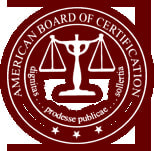|
Bankruptcy cases can be complex and challenging for both debtors and creditors. However, a recent Supreme Court ruling has shed light on an important aspect of consumer bankruptcy: the ability of consumer debtors to sue tribes for violating the automatic stay. In this blog post, we will explore the implications of the Lac du Flambeau Band of Lake Superior Chippewa Indians, et al. v. Coughlin case and discuss the specific requirements tribes must adhere to under the Bankruptcy Code.
Background of the Case On June 15, 2023, the U.S. Supreme Court delivered its decision in the case involving Lendgreen, a tribal entity that had provided a high-interest, short-term (aka a cash advance or 'payday') loan to an individual named Brian Coughlin. Coughlin subsequently filed for bankruptcy under Chapter 13. Lendgreen, believing it was exempt from certain provisions of the Bankruptcy Code, including the automatic-stay provisions, continued its debt collection efforts despite the ongoing bankruptcy proceedings. In response, Coughlin filed a motion to enforce the automatic stay against Lendgreen, its parent corporations, and the tribe. The Court's Ruling The Supreme Court's ruling in Lac du Flambeau clarified that tribal sovereign immunity does not shield tribes from specific requirements of the Bankruptcy Code, as outlined in 11 U.S.C. § 106(a). The Court determined that the definition of "governmental unit" within Section 106(a) includes tribal governments, effectively abrogating their sovereign immunity for the enumerated provisions of the Bankruptcy Code. This decision resolved a circuit court split that had persisted since 2019. Important Provisions Implicated by the Ruling The Lac du Flambeau ruling has significant implications for various provisions of the Bankruptcy Code. It's essential for tribes and tribal entities to familiarize themselves with these provisions and seek legal advice when necessary. Here are some key provisions affected by the ruling:
The Supreme Court's decision in Lac du Flambeau Band of Lake Superior Chippewa Indians, et al. v. Coughlin has clarified that tribes are subject to certain provisions of the Bankruptcy Code. The bottom line is that while in the past, where tribe ownership has been used as a shield to prevent debtors from clawing back funds in excess of $600 taken during or within 90 days of filing bankruptcy, if you file bankruptcy you are protected and can get your money back and prevent further collections actions. If this has happened to you, contact me at 248.719.5663 immediately so I can help you!
0 Comments
|
AuthorJesse Sweeney is the President of Sweeney Law Offices, and an American Board Certified bankruptcy attorney licensed in Michigan and Colorado. He has been practicing for over 20 years, and has spoken on a variety of bankruptcy related topics. Archives
March 2024
Categories |
 RSS Feed
RSS Feed


